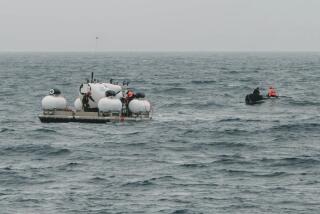Safety is Good Business
- Share via
Government safety regulation is the bane of American business. Until something goes seriously wrong. Then the absence of government safety regulation is the bane of American business.
A case in point, as called to mind in The Times’ three-part series on the transportation of hazardous materials, was the reaction of the Southern Pacific railroad to the catastrophic July 14, 1991, spill of metam sodium into the Sacramento River. True, the poison leaked from a Southern Pacific tank car. True, it killed virtually every organism in and along the river downstream from the spill. But, said Southern Pacific, it was the government’s fault: The Department of Transportation had not listed metam sodium in the 32.7% concentration that spilled as a hazard. The railroad had no alternative but to accept the chemical in easily punctured 111A tanker cars from the chemical manufacturer that owned the cars.
Southern Pacific had the law on its side. The point of its plea, however, and a clear implication of The Times’ series, is that in some areas of our national life--and “hazmat” transportation is clearly one--there is no alternative to government regulation. Absent strong regulation by agencies with enough expertise to control the technical data and enough personnel to enforce their own regulations, competing industries will run unacceptable risk in attempting to undersell each other. The nation must not permit them to end up in that dilemma even when, shortsightedly, they may wish it.
The railroad industry and the trucking industry are not going to be weakened in any international competition by domestic regulation that requires both to meet a high safety standard. Railroading’s accident-prone 111A car and trucking’s tractor-trailer “rolling bomb” are competing with each other, not with the Japanese. If these proven hazards are left uncorrected, the economy will be no better off, but public safety--given the skyrocketing quantities of “hazmat” on road and rail--will be decidedly worse off.
More to Read
Sign up for Essential California
The most important California stories and recommendations in your inbox every morning.
You may occasionally receive promotional content from the Los Angeles Times.










